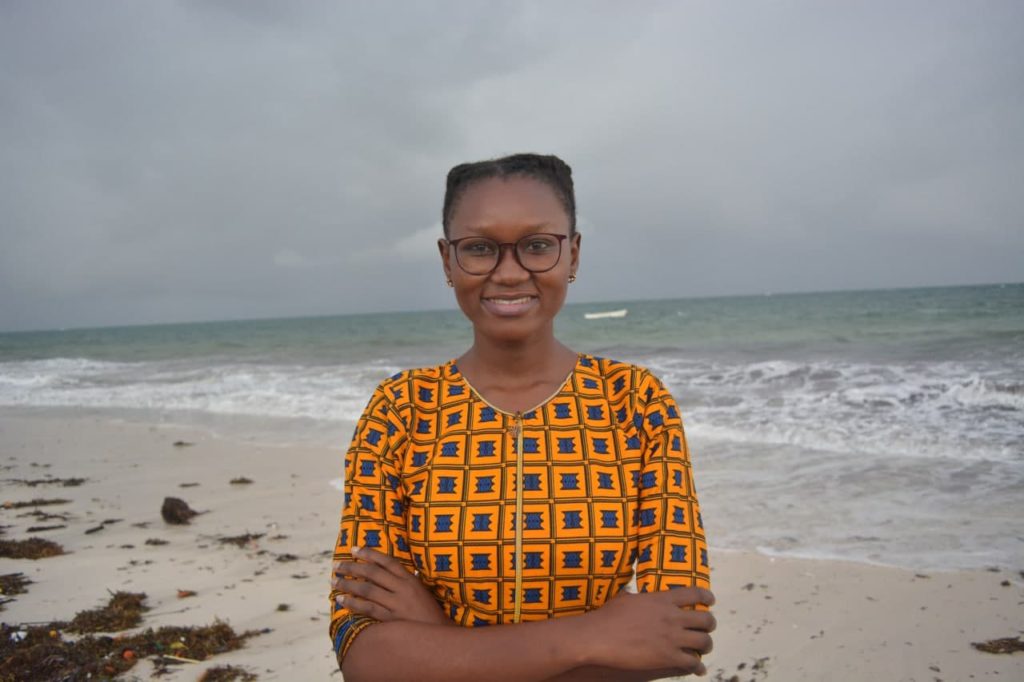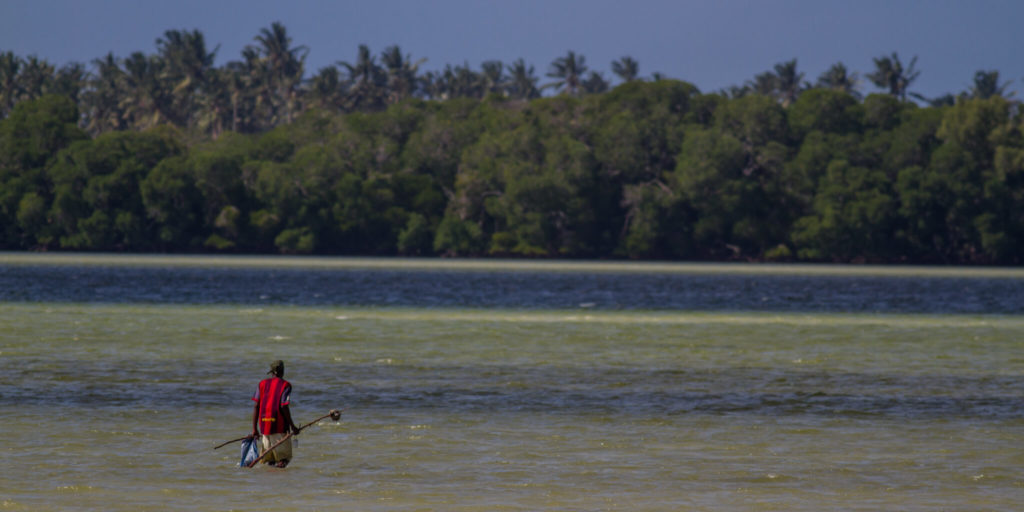
GCRF Funding Cycle
2020-21
Principal Investigator
Tim Stojanvoic
Schools
Geography & Sustainable Development, Computer Science
ODA countries
Madagascar, Ghana, Kenya
Global expansion of marine protected areas (MPAs) is set to rapidly continue, adding to the astounding 28 million sq.km of oceans and coasts designated since 2000, to deliver the SDG Target 14.1. These MPAs will only achieve nature conservation objectives and generate community wellbeing if they are well governed.
The aim of this project is to network three conservation NGOs, with long term commitments to place in ODA countries, with one another and the University of St Andrews to: (i) generate learning about good governance of protected areas, and (ii) develop new, pro-conservation livelihoods related to MPAs to support marginalised communities.
In Kenya, the project has reached a phase where there is enthusiasm amongst stakeholders and community representatives about: (A) Carbon credits for mangroves in Mida Creek and seagrass in Watamu Marine Protected Area, which will provide a stream of finance to local communities for protecting these habitats; (B) eco-certification for tourism boat operations in Watamu and Mida Creek in partnership with Kenya Wildlife Service, which will allow boat operators to charge a premium for their services; (C) Alternative livelihoods for fishers in closed season will provide land-based, low-input agrobiodiversity to cover for reduced access to fisheries. Thus our project will contribute to the development and wellbeing of the communities in ways which are compatible with the conservation goals of the protected area.
Associated SFC GCRF funded projects on the St Andrews research portal
- SFC GCRF 2020-21
Pro-conservation livelihoods and community capabilities for marine protected area governance - SFC GCRF 2020-21 (current cycle, PhD catalyst)
Co-creation of Conservation Knowledge for Coastal and Marine Reserves - SFC GCRF 2019-20
Community Capabilities and Marine Protected Area Governance: Scaling up and Capacity development - SFC GCRF 2018-19
Community Capabilities and Natural Protected Area Governance
Developing capabilities: Kenyan women in community conversation
Project member Judith Ochieng (Marine Governance Project Officer, A Rocha Kenya) provides an insight into her role in the project, focusing on developing capabilities to support Kenyans and local communities to improve their skills and participate in marine protected areas.

Tell us about your professional background?
I have a bachelor’s degree in Environmental Science. I started my professional experience by working with Voluntary Services Overseas as a volunteer. Here I developed a keen interest in community development projects. My work involved engaging community members, women’s groups and conducted training on entrepreneurship and business skills. It was here I also began to empower students and school groups in terms of taking action towards the conservation of the environment. I have also worked with the Agricultural Finance Corporation, helping agricultural businesses develop alternative livelihood schemes such as poultry farming and beekeeping.
I joined my current organisation A Rocha Kenya in January 2018 where I have been involved in collecting, managing, and publishing biodiversity data with the aim of using that data to influence policymaking and conservation of Arabuko-Sokoke Forest on the north-east coast of Kenya. Arabuko-Sokoke Forest is the largest and most intact coastal forest in East Africa at 420 km2. It is known as a biodiversity hotspot worldwide with 20% of Kenya’s bird species, 30% butterfly species and at least 24 rare and endemic bird, mammal, and butterfly species.
What is your role at A Rocha Kenya NGO?
Since 2020 I have been employed as the Marine Governance Project Officer for A Rocha Kenya, part of the GCRF funded project Pro-conservation Livelihoods and Community Capabilities for Marine Protected Area Governance.
My role is to oversee the implementation of the project. I’m currently focused on designing a certification scheme for boat operators in Watamu by engaging with key stakeholders in the tourism industry.
What has been your contribution to this GCRF project and what have you learned from it?
One of the successes we’ve had in the project is that I have been able to engage with local communities and provide a platform for them to air their views on governance issues concerning the Watamu Marine Protected Area. Before this, certain groups of the communities were not fully engaged but providing this platform has encouraged inclusivity and helped us to know the problems currently faced.
Hosting the Watamu Marine Protected Area Governance Workshop back in February 2021 was also a major success as it enabled us to bring people together (business entities, academics, local NGOs, local communities, government institutions) to develop a common vision. The workshop helped strengthen relationships and the delegates that attended committed to supporting the Kenyan Wildlife Service in the implementation of the management plan for the Watamu Marine Protected Area through the formation of working groups.
My contribution in developing a certification scheme for boat operators has also been a highlight. I am currently holding interviews with key stakeholders in the tourism industry within Watamu, and more widely in Kenya, so they can share their views about eco-certification. A lot of the people I’ve engaged with have, for example, recommended we focus more on the marketing aspect of eco-certification to help to get buy-in from the boat operators to be able to register under the certification scheme. I am now taking forward marketing as a key aspect of this work.
How has the project supported you in your professional development? And do you think there are unique challenges as a Kenyan woman?
It’s been a great learning experience. I’ve previously been involved in terrestrial research, and this project has presented the opportunity for me to learn more about conducting research in social science and the marine side of things.
I’ve been able to network and learn a lot more because it’s not only a project in Kenya, it’s also running in Ghana and Madagascar. The opportunity to learn from each other, to come together during project meetings, share ideas, and use our similar challenges to help us plan the way forward in terms of conservation.
We are exploring incorporating technology, such as Virtual Reality, to support the conservation work we are doing. I was able to use it for the first time under this project, it was such a cool experience, and I am excited to continue learning how to use it.
I’ve also been able to learn a lot on academic writing and proposal development, and through hosting meetings online my facilitation and organisational skills have been improved.
Strengthening relationships and bringing people of different world views together to take a common action is a difficult challenge to achieve in only 10 months. Going forward, one of the major learning points I’ve taken from the project is to be able to start thinking long-term in terms of designing projects to be able to achieve a common vision together.
It is also a male-dominated field, there are very few females involved in this kind of work. But that’s not to say that it is a disadvantage. It’s important for me, or any other person involved in the project, as a woman, to be able to contribute because we’ve been given that platform. During my meetings with local communities, I had a challenge with women airing their views and I think going forward it’s important for us to think of ways that are inclusive particularly for women in the context of the cultural background we are working within Watamu.
Is there anything else you would like to share?
I just wanted to say thank you – because this opportunity has provided a platform for me to learn. I have learned how to successfully establish a Carbon Credits project. Eco-certification has provided an opportunity for me to learn the priorities of the local community members and to work together for us all to be able to achieve our conservation needs.
It’s also been great to see how alternative livelihoods through Farming God’s Way has taken shape in Watamu. Although we’ve had challenges with the rain, it’s a project that local community members are enthusiastic about.


